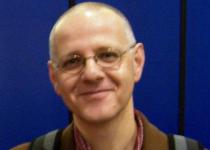
My educational research in both sciences and literacy involves providing increased access to a wide range of students with differing abilities and generating a process of ownership, engagement and persistence in their educational work. Directly related to these concerns are the promotion of personally important inquiry activities. As I wrote in an early book on science education (Scientific Discourse: Multiliteracy in the Classroom), I think that the real problem with existing education systems of all types and on all levels is that they are concerned with “old knowledge” and not with the generation of new knowledge. Accordingly, a large part of my educational work has involved the development of student research experiences. At the heart of my research are three interrelated questions:
1. What characterizes a research experience?
2. In what ways can these research experiences be measured?
3. In what ways, do these research experiences interact with students from diverse demographic profiles?
My early science educational research funded by the NSF and through the Lawrence Hall of Science at UC Berkeley, looked carefully, using qualitative methods, at what scientific inquiry teaching in different educational settings looked like. In 2005, I was introduced to Prof. Graham Hatfull of the Department of Biological Sciences at the University of Pittsburgh. At that time, he was running an innovative scientific inquiry program focused on the isolation and identification of a particular form of virus (bacteriophage). What was special and unique about this educational program was the focus on authentic science and the scientific inquiry that this entailed. This dovetailed nicely with my own interests in inquiry teaching and the research methodologies for studying such contexts that I had developed
I worked in conjunction Dr. Hatfull and his team as an educational researcher and assessment specialist and over a period of several years a series of projects defining scientific inquiry teaching, assessment in the sciences, and undergraduate science education papers and research studies emerged. Throughout this period and continuing at the moment, my work has been generously supported by the Howard Hughes Medical Institute. This support has allowed me the luxury that not many researchers enjoy—time to really focus and develop a novel body of science education research over an extended period of time.
The important findings from this research context can be summarized as follows: development of the active assessment approach designed for scientific inquiry teaching; data driven understandings of course-based research experiences; and a series of validated assessment tools for assessing laboratory courses. Currently I am the Lead Assessment Coordinator of the SEA-PHAGES program directed by Graham Hatfull and supported by the Howard Hughes Medical Institute.
